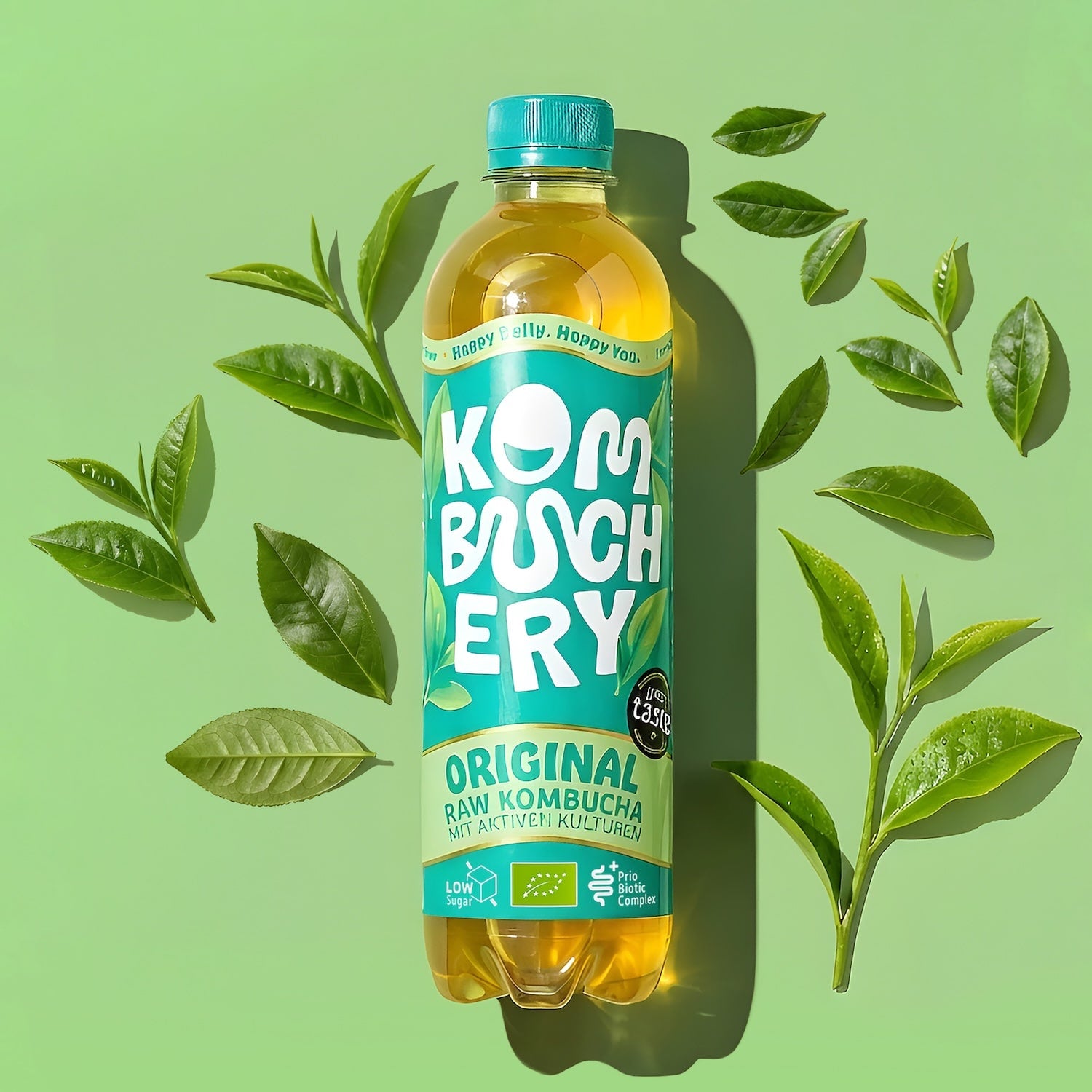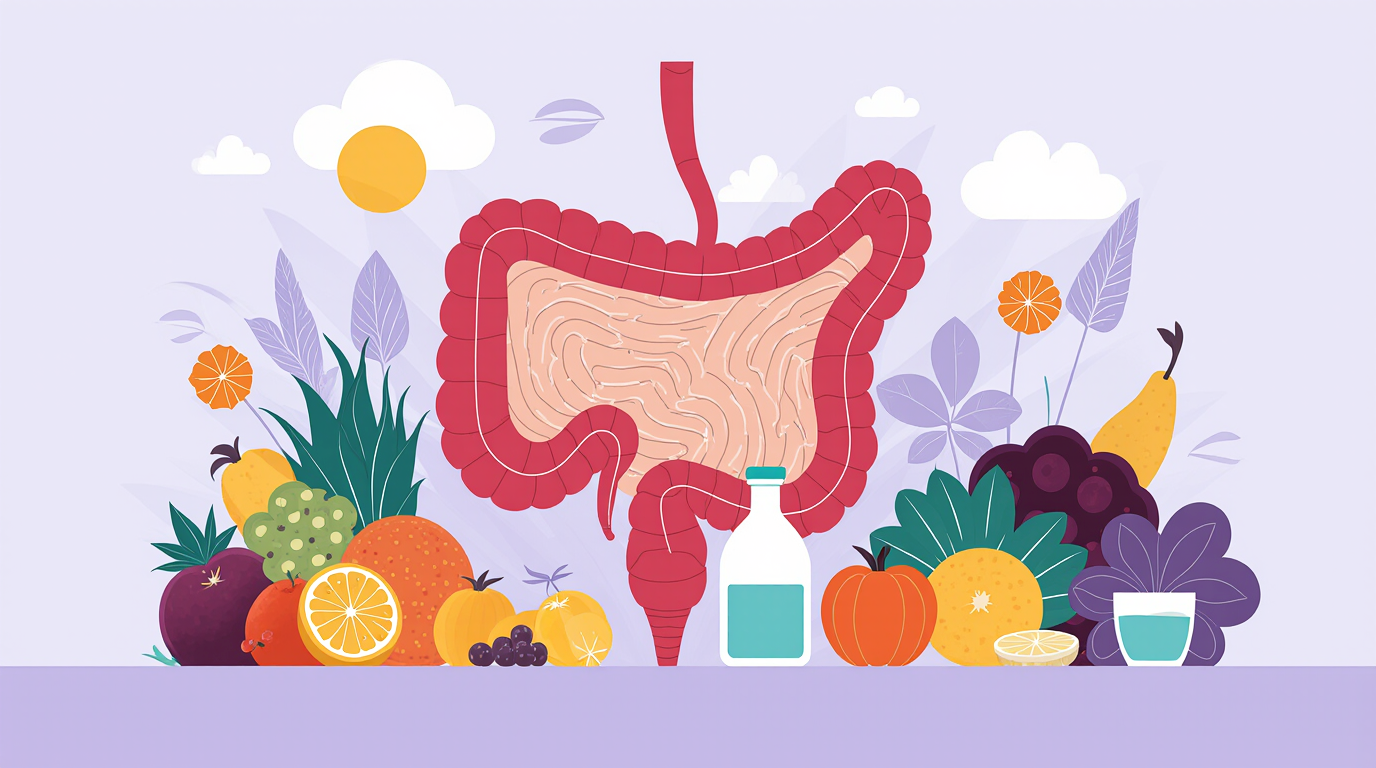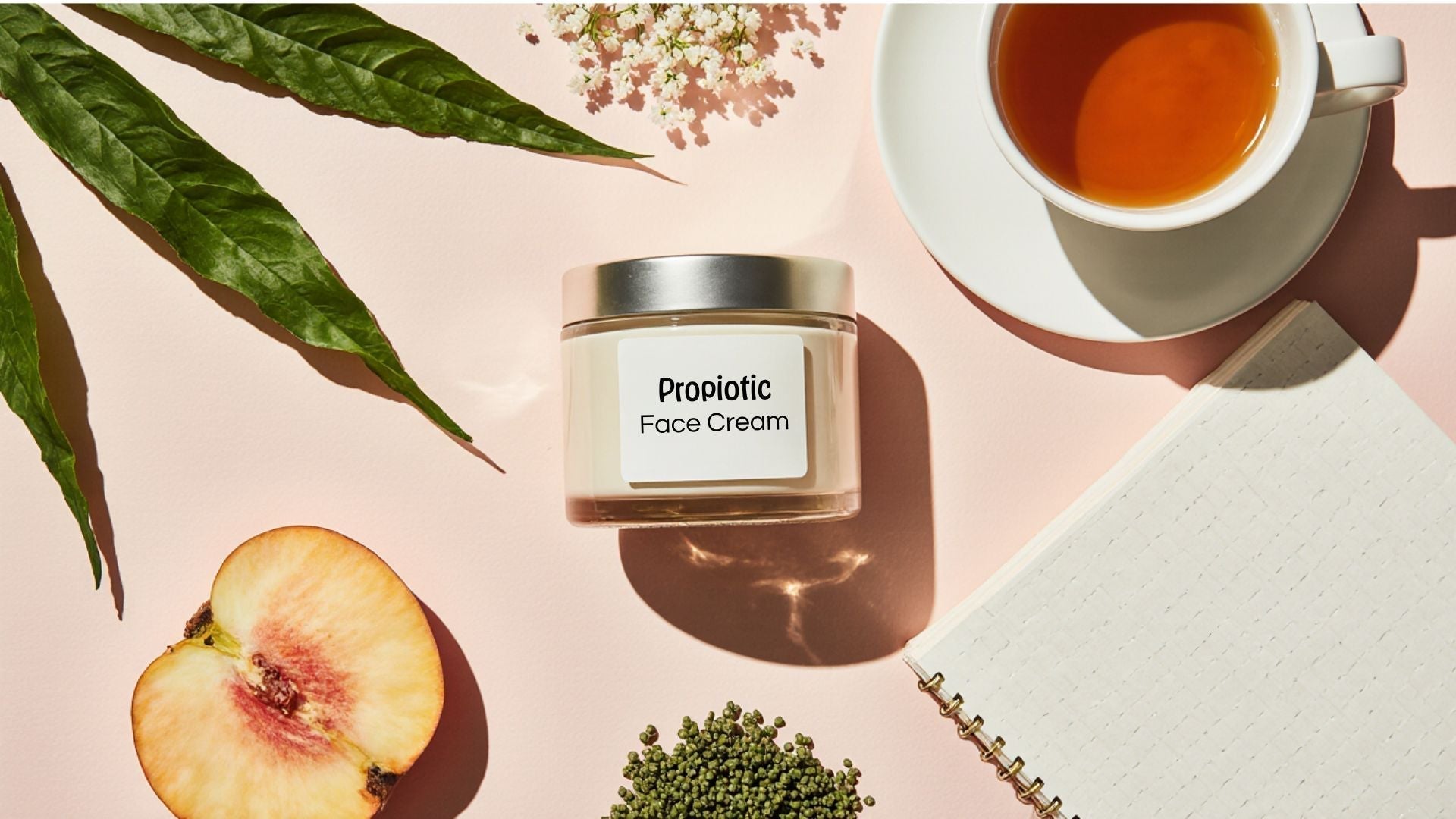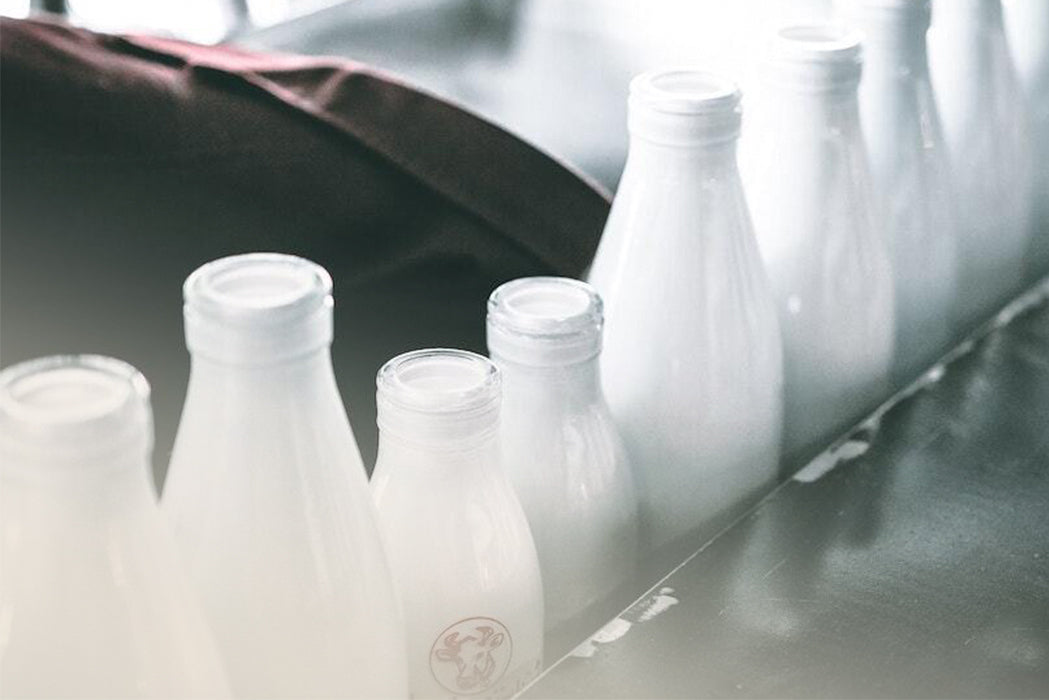Warum Kombucha dein Leben bereichern kann
Am 15. Januar ist Welt Kombucha Tag (National Booch Day)! Unser persönlicher Liebelingstag! Warum lieben wir Kombucha so sehr und wieso kann es deinem Körper gut tun herkömmliche Erfrischungsgetränke mit Kombucha zu ersetzten?

Zurück zu einer ursprünglichen Ernährung
Das fermentierte Teegetränk ist nicht nur ein wohltuendes Erfrischungsgetränk, sondern eine Lebenseinstellung. Im Leben muss oft alles ganz schnell gehen und die vielen Reize überfordern oder äußere Umstände bauen Druck auf. Um Kombucha herstellen zu können, müssen wir geduldig sein und die Fermentation langsam voranschreiten lassen. Am Ende entsteht ein lebendiges, leckeres und erfrischendes Getränk, das auf natürliche Weise unser Leben bereichert. Es ist vegan und natürlich probiotisch und kann deine Gesundheit positiv beeinflussen. Geduldig sein lohnt sich. Gute Dinge entstehen meistens erst mit der Zeit und können dann nachhaltig das Leben verändern. Ein Getränk, das durch ein traditionelles Lebensmittelhandwerk hergestellt wird und ganz im Sinne der Slow Food Bewegung nicht nur gut schmeckt, sondern auch nahrhaft ist und die Ressourcen unserer Erde und unsere Umwelt nicht unnötig belastet.

Kombucha entsteht auf einer Teebasis
Ein guter und geschmackvoller Tee ist essenziell für einen geschmacksintensiven Kombucha. Der Teepilz besteht aus verschiedenen Hefen und Bakterien, sowie kleinen Mikroorganismen und benötigt zum Wachsen und Gedeihen Nährstoffe wie Koffein, Stickstoff und Theanin. Diese befinden sich in den Teesorten der Camellia Sinensis. Tee liefert dem Scoby wichtige Antioxidantien und Polyphenole und dient ihm als Nährboden. Außerdem hat er viele wichtige Nährstoffe, wie z.B. Vitamin C und B. Nach der bis zu 14-tägigen Fermentationsdauer wird aus dem anfänglichen gezuckerten Tee ein Erfrischungsgetränk mit vergleichsweise niedrigem Zuckergehalt. Der Zucker wird vom Scoby fast vollständig verstoffwechselt und andere wichtige Nährstoffen können entstehen. Dazu gehören z.B. organische Säuren und Vitamine, sowie die für den Kombucha Geschmack verantwortliche Gluconsäure.
Durch bewusste Ernährung Supplements einsparen
Oft achten wir nicht bewusst genug darauf was wir zu uns nehmen und haben dadurch Mängel, die viele von uns mit Suplements auszugleichen versuchen. Betrachtet man seine Ernährungsweise etwas genauer sind es manchmal nur kleine Stellschrauben, die uns helfen können diese Nährstoff- oder Vitaminmängel zu verhindern. Durch regelmäßigen Verzehr von bestimmten Lebensmitteln kann man diese vermeiden und fast ganz auf Supplements verzichten. Auch Kombucha kann so eine Stellschraube für dich sein.
Diese Inhaltsstoffe können bei der Fermentation von Kombucha entstehen:
| Aminosäuren | Der menschliche Körper besteht neben Wasser zu größten Teilen aus Aminosäuren, den kleinsten Bausteine der Proteine. Diese sind wichtig für die Bildung neuer lebenswichtiger Proteine und spielen auch bei der Erregungsübertragung zwischen Nervenzellen, sowie bei der Verstoffwechselung eine tragende Rolle. |
| Buttersäure | Diese Säure entsteht durch den Abbau von Glukose und verschiedene im Kombucha enthaltende Bakterienstämme, die unter anderem auch im menschlichen Dickdarm anzufinden sind. Sie führt dazu, dass, das sich gesunde Darmzellen bilden können und Entzündungen gehemmt werden. |
| Bernsteinsäure |
Die sogenannte Bernsteinsäure wird oft als ein Ergänzungsstoff verwendet, der sich positiv auf den menschlichen Organismus auswirkt. Sie dient als Antioxidantium, soll die Genesung des Nervensystems befördern und das Altern der menschlichen Zellen verlangsamen. Außerdem spaltet sie Acetaldehyd, ein giftiges Nebenprodukt der Alkohol-Verstoffwechselung und kann dadurch unangenehmer Katerbeschwerden lindern. |
| B Vitamine |
Die Gruppe der B-Vitamine ist riesig und wirkt sich auf viele verschiedene Körpersysteme aus. In erforschten Kombucha-Proben kamen folgende B- Vitamine vor:
|
| Essigsäure | Die während der Gärung des Kombucha entstehende Essigsäure sorgt dafür, dass es Kombucha fremden Mikroben (Mikroorganismen) quasi unmöglich wird den Tee zu verunreinigen. Sie wirkt stark antibakteriell. Außerdem kann Sie eine Senkung des Blutzuckerspiegels bewirken, da sie bei der Aufspaltung von Zucker und Stärke beteiligt ist. |
| Enzyme |
Enzyme sind Proteine, die aus Aminosäuren bestehen und im menschlichen Körper als Katalysatoren für chemische Prozesse wirken. Sie unterstützen die Verdauung und helfen dem Körper verschiedene Nährstoffe aus Kohlenhydraten, Pflanzenfasern, Fette und Proteinen aufzunehmen. |
| Gluconsäure | Bei der Aufspaltung von Glukose entsteht die Gluconsäure als Nebenprodukt durch das Bakterium Gluconobacter. Dieses Bakterium ist sowohl in unserem Darm, als auch im Kombucha vorhanden. |
| Probiotische Milchsäurebakterien | Die Ansammlung aus lebenden Mikroorganismen können eine besonders gesundheitsfördernde Wirkung auf den menschlichen Organismus haben. Vor allem der Darm kann von probiotischen Milchsäurebakterien profitieren. Sie unterstützen aktiv den Erhalt und Aufbau der Darmflora und stärken gleichzeitig das Immunsystem. |















Teilen: